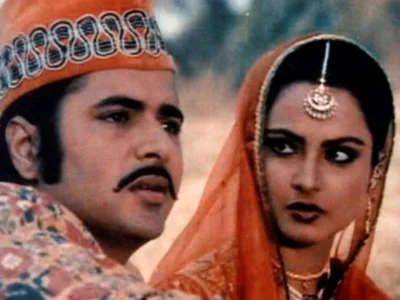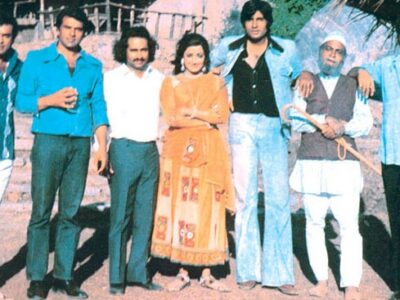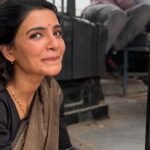Phule – the biopic of one of the foremost social reformers of India – Jyotirao Phule and Savitribai Phule was supposed to have released on April 11th with a U certificate. Later the Censor board took a ‘U’ turn and halted the release date was furthered to April 25.
Today despite abiding by the multiple cuts as directed by the Censor Board – the film is mired in controversy. Does the film Phule deserve the backlash?
Let’s find out!!
Baba Saheb Ambedkar popularly said about Jyotirao – he is my Mahatma. And the 19th century social reformer and anti-caste activist is indeed referred to as Mahatma Jyotiba Phule even today. Actor, director Anant Mahadevan has directed the biopic – Phule that was going to be released on Jyotiba’s 197th birth anniversary on April 11th post Censor certification. But now it will release on April 25th post forced cuts following protests against references to Brahmins.
Since Jyotiba worked against the Varna system, educated 100s of students despite their caste and gender even while facing backlash, educated his wife Savitribai who went to become an iconic women activist way back in the 19th century and was himself at the receiving end of discrimination and ridicule – a biopic on him must refer to caste.
However, in recent times it feels like there is a constant pressure and intent in erasing important pages of history in order to propagate a certain majoritarian narrative. And, creative arts especially films of the recent times face the brunt. The more recent example is the L2: Empuraan – the Malayalam film that was made on national scale and the backlash on social media was such that Mohan Lal had to issue a statement and a few scenes were removed. Incidentally the protesting masses are mostly faceless barring a few right-wing organisations.

From BR Ambedkar Caravan Website
History is evidence enough that caste discrimination existed and was propagated in the name of Manusmriti through centuries that continues to this day – outwardly progressive but caste does play a major role in the politics and societal dealings of the day. The ghastly honour killings is just one example of the ugly face of deep rooted casteism in India. When the so-called lower castes are being oppressed it is but evidence of an existence of the superiority complex of the upper caste and its Brahminical attitude (not referring to the Brahmins only); more so in the bygone years when Dalits had to follow several restrictions and lived outside the villages as outcasts.

Phule Movie Controversy – Where it started!!
Pratik Gandhi and Patralekha starrer Phule’s problems began when it was almost getting ready to release and some members proclaiming to be from the Hindu Maha Sangh began to protest on a dialogue and scene. This scene on the trailer shows a Brahmin boy throwing dung on Savitri Bai Phule when she is one her way to educate girls. She had to face ridicule and abuse for her revolutionary work, and this is mentioned in several books written on the Phule couple. Her sin was that she was educating girls, and she belonged to Shudra community.
Going back in time, celebrated director Late Shyam Benegal’s popular series for Doordarshan in the 1980s ‘Bharat Ek Khoj’ had similar scene. It is but the short sightedness of the protestors reacting to one scene and the Censor Board that responded to protests that defy logic. The Board went ahead and asked the filmmakers to remove terms referring to caste and Manu. This forces us to wonder – What is the purpose of these cuts. Is there a larger purpose – that aims for erasing Dalit history – which any way is least referred to or documented.
These cuts beat the very purpose of presenting authentic historic facts by not allowing dialogues that refer to the lower caste people who were made to wear an earthern pot in the neck and broom at the back in order to cleanse the road that they walk on and prevent even a drop of their saliva falling to ground. There is historical evidence to this custom in Maharashtra where it was believed that the Dalits made the water and the land they walk on impure for the upper caste Peshwas and Brahmins.

Ketan Mehta’s Bhavni Bhavai
A Gujarati film of the 80s Bhavni Bhavai – the debut film of director Ketan Mehta makes extensive references to this practice. It is a masterpiece of film making. The premise moves from present to past and the dying form of folk drama Bhavai is used to narrate an ancient tale. The Bhavai tale called ‘Achhootno Vesh’ (Garb of the Untouchable) “talks about the exploitation of Harijans (so low in the caste hierarchy that they were considered Untouchable). In this region the upper castes enforced restrictions of dress that marked as well as dehumanized the Harijans. Thus, the Harijan had to wear a broom behind him to erase his offensive footprints; he was required to don a third sleeve as a sign of submission; he had to carry a clay spittoon around his neck; and he could only wear unwoven yarn as headdress.” (NCPA).
There are references to this practice even in Baba Saheb Ambedkar’s books.

The Story of Jyoti Rao Phule and Savitri Bai Phule in Bharat Ek Khoj directed by Shyam Benegal
Phule Release Date April 25
Coming back to the movie Phule – many feel that the film when it will finally release on April 25 – despite its sanitised version is still an important one for all generations, especially the young India to watch.
The film will reveal the story of the pioneering work of the brave couple Jyotirao Phule and Savitri Bai Phule. An important story that largely went untold – over the years irrespective of which government was in power.

Story of Jyoti Rao and Savitri Bai Phule
Jyoti Rao Phule (1827 – 1890) belonged to Mali community of Satara village. He was lucky enough to have gained education in a missionary school. His experiences of discrimination inspired him to work towards educating lower community kids and eventually along with his wife Savitri Bai he worked relentlessly to promote education especially of girl children. He is said to have coined the word – Dalit. His book Gulamgiri is regarded as one of the most important texts on Dalits.
Savitri Bai Phule (1831 – 1897) defied discrimination she had to face as a woman and being from Mali Community – a lower caste in the Varna system. Post her marriage to Jyoti Rao at a young age of 9, she studied and went on to become a pioneer of women’s education and a social reformer, who worked against caste, infanticide and for women’s rights.
The couple vociferously worked towards women empowerment through education, preventing infanticide and would encourage pregnant widows of all castes to go to them and deliver a baby in secret to escape ostracization. They encouraged widow re-marriage. The couple opened schools where kids from all castes especially women would go and study. The progress that we witness today – be it in educating the discriminated castes or women – a large part of it can be attributed to the inspiring work of this legendary couple from Pune.

Anant Mahadevan
In trying to undermine stories of such selfless individuals who promoted equal rights and welfare – and on the other hand promoting agenda driven – hate mongering narratives – the censor department in particular and the government in general are clearly defying the constitution leave alone Censor Board guidelines.
There is no Phule without Brahmins – Director Anant Mahadevan
CBFC has asked the film makers to remove words ‘Mahar’, ‘Mang’, ‘Peshwai’, and ‘Manu system of caste’ and dialogues including “Jahan shudro ko…jhadu bandhkar chalna chahiye and “3,000 saal puraani…gulaami!
Phule movie Director Mahadevan says – “I don’t blame them. They are sitting on hot bricks. Every time a film portrays a historical figure, someone, somewhere in the country protests, and the CBFC gets blamed. So, they’ve started playing it safe.”
He insisted that he did not cut any scenes, and assured the detractors who jumped to conclusions that the film is not against Brahmins. In fact, it also goes on to show how Brahmins were instrumental in Jyotirao Phule’s work. “There is no Phule Without Brahmins,” he adds.
















